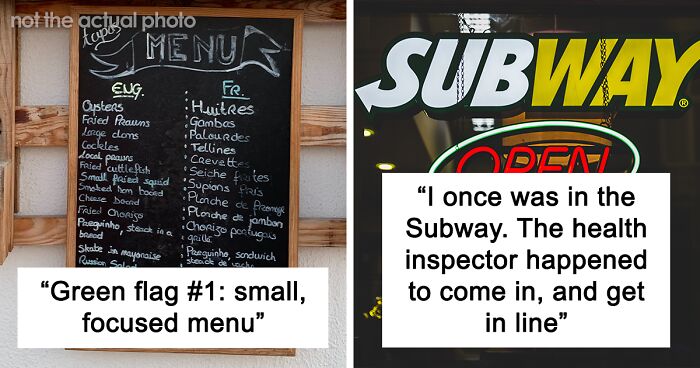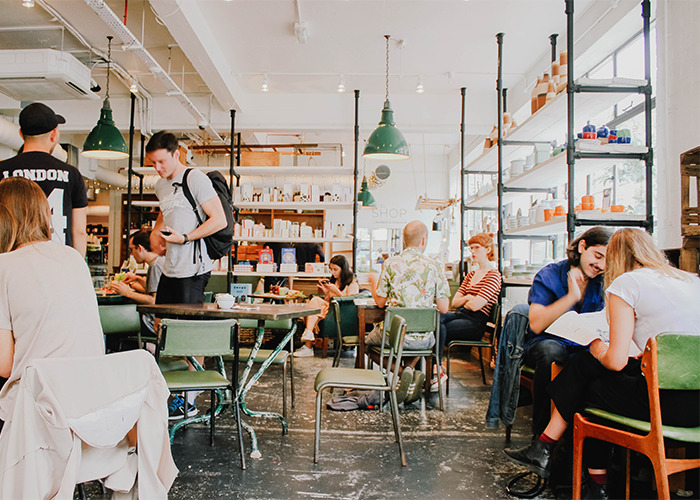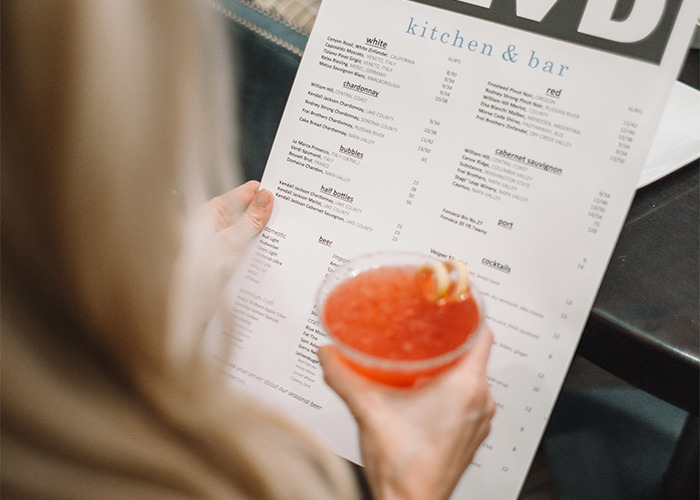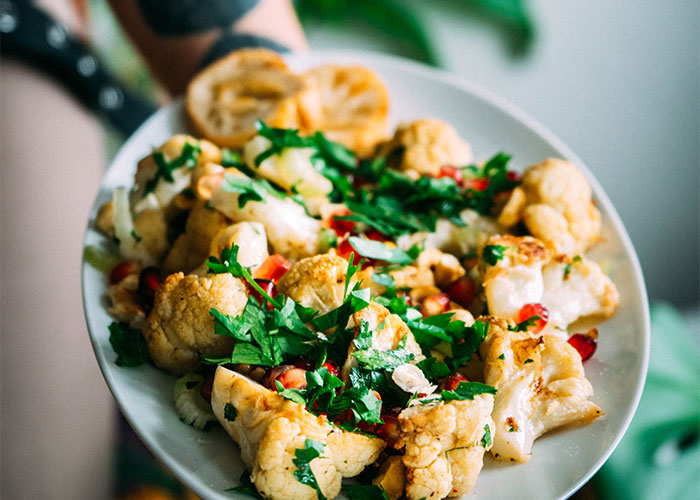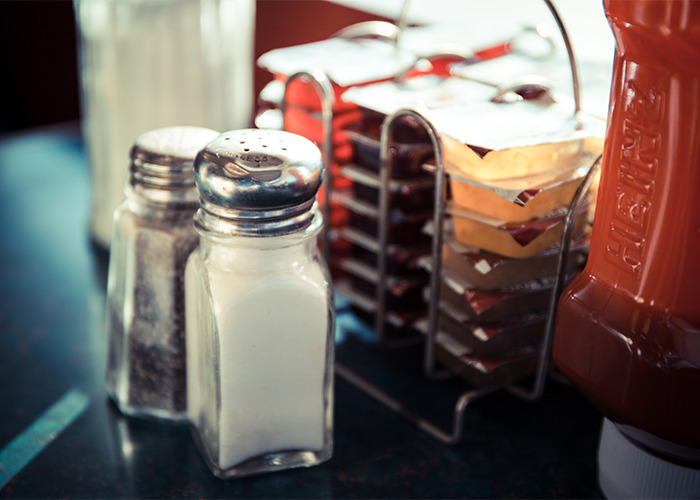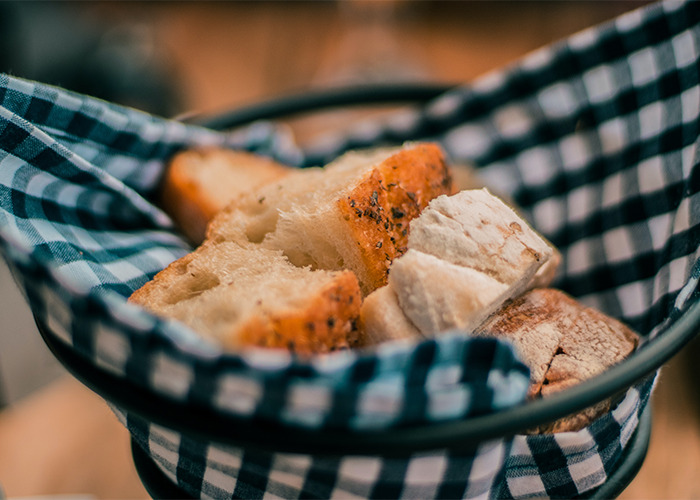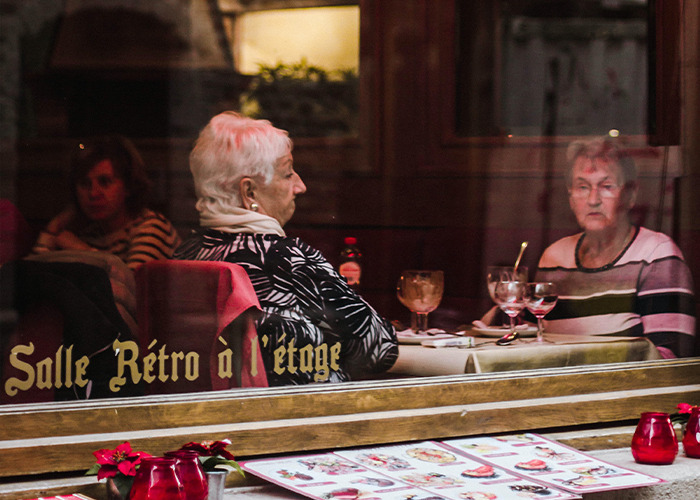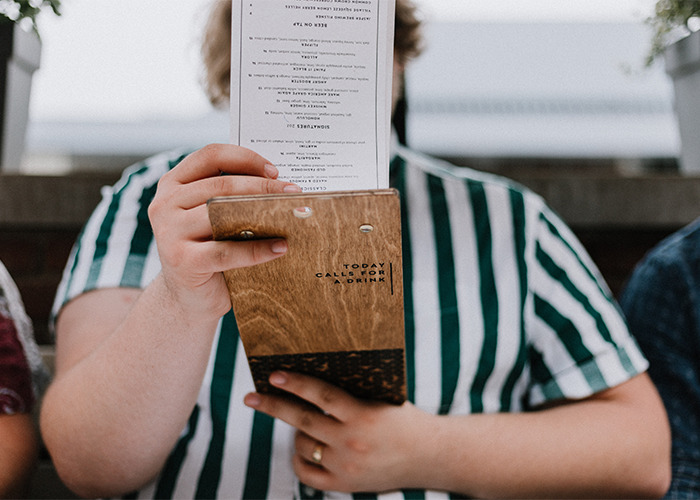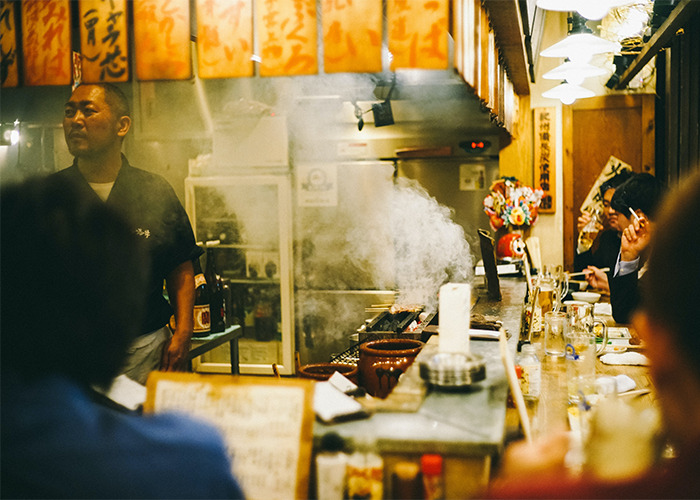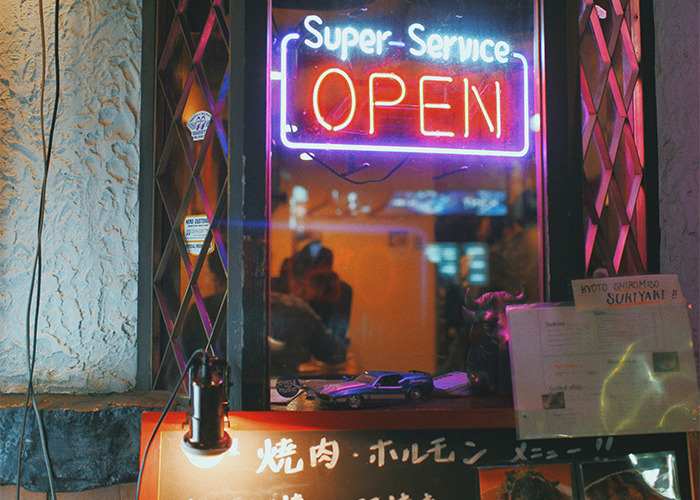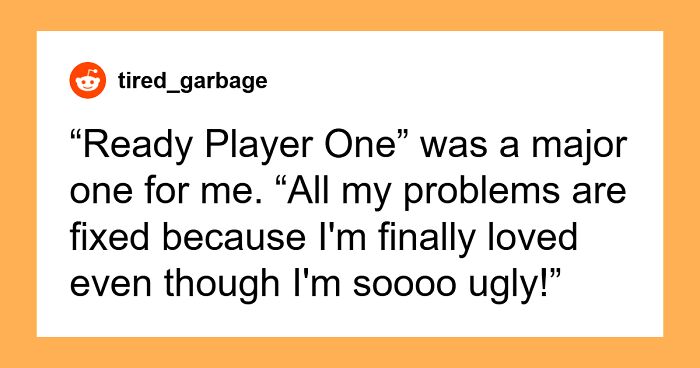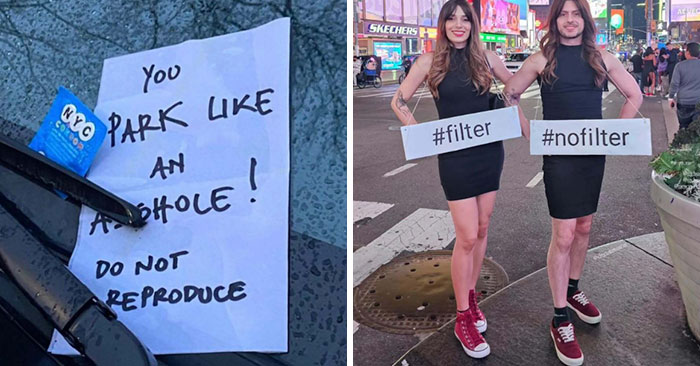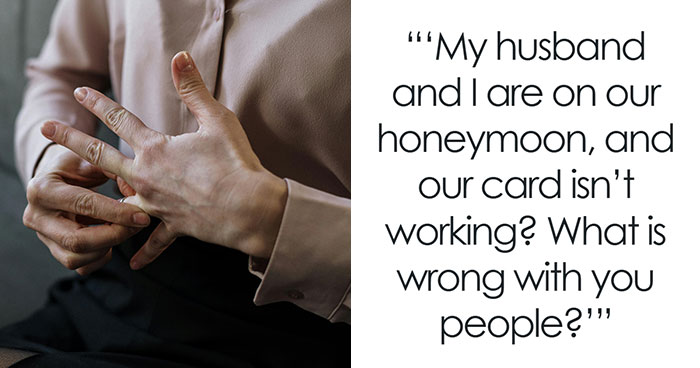You enter a nice-looking restaurant and you're ushered to what appears to be a sticky table. Or you ask your sluggish waiter about the oysters and he has no clue what you're talking about. You know, the usual red flags that just beg to stay clear of the place.
But as much as we enjoy helping you not to fall into the wrong hands by calling out the telltale signs of a bad time when eating out - what if we flip things over like a patty and look at promising signs instead? Inspired by u/halfblood_god's "What are some green flags in restaurants?" prompt on Ask Reddit, we decided to hand-pick the best answers to see how people spot fine dining establishments from a mile away.
This post may include affiliate links.
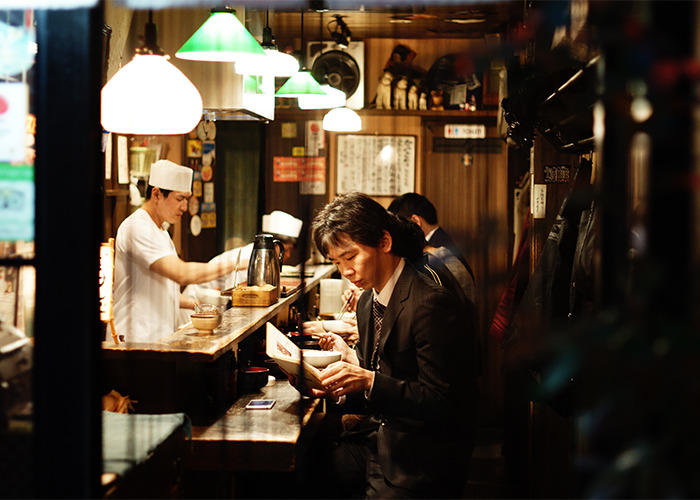 If you walk into a restaurant that serves food from a different country and every single person in there (working and dining) is from that country.
If you walk into a restaurant that serves food from a different country and every single person in there (working and dining) is from that country.
In my experience that means you're about to have an awesome meal.
Yep, happened to me in northern France - I wanted to try african cuisine and the place was full of people form Africa, there was even a "senior" table where elderly people were playing cards... and the food was delicious
Most of you will know what it's like to be caught off guard by the news of your folks dropping in the very next day to visit their child. You have a couple of places in mind you could take them but they're fully booked. You, now panicky, start asking for recommendations from Google, Yelp and your friends, but the mixed responses only make things worse. Should you not mind those few 1-star reviews and take chances with the steakhouse or play it safe and book a fancy, new place on the outskirts of town?
In any case, it's tricky to figure out the excellent restaurant from the ones not even worth taking your Bumble date to, seeing as most of them (at least, in the same price range) all look pretty much alike. That's why we turned to Andy Hayler, a London-based fine-dining critic for Elite Traveler magazine, who was the first person to have been to every 3-star Michelin restaurant in the world (yes, even Jiro Ono's Sukiyabashi Jiro).
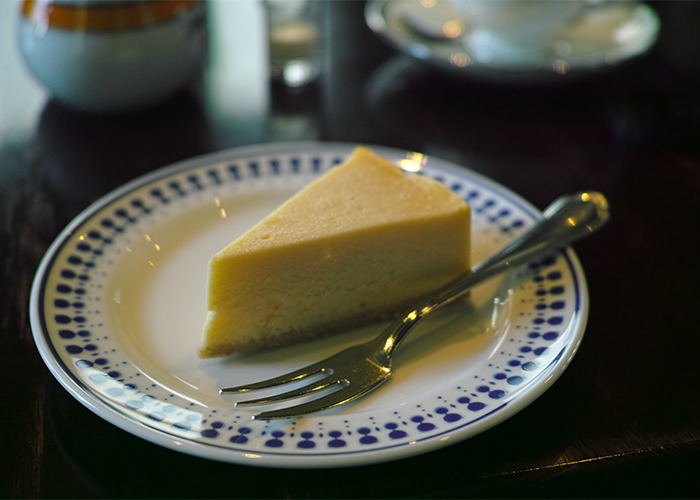 One time I was at the Hawthorne Hotel with my family. Our orders were taking a while because they started a bunch of new staff members that day so obviously mistakes will be made. My mother did have to send one thing back because it wasn't cooked all the way but otherwise it wasn't a big deal.
One time I was at the Hawthorne Hotel with my family. Our orders were taking a while because they started a bunch of new staff members that day so obviously mistakes will be made. My mother did have to send one thing back because it wasn't cooked all the way but otherwise it wasn't a big deal.
The manager of the dining area kept communicating with customers and she offered us a free slice of cheesecake each for desert to compensate for the delay.
The free cheese cake was nice but moreso was the communication and the fact that the manager wasn't belittling the kitchen staff but just letting us know that some of them were inexperienced.
that's the way you do it...train your staff and be aware that there will be some incidents.
Turns out, no matter if you're a mere foodie or a well-respected food critic, there's no escape from getting the vibe of a place by reading online reviews. "Positive reviews of the restaurant, ideally from a respected guide like Michelin or a restaurant reviewer that you trust," Hayler explained to Bored Panda in an email, should set you on the right course.
According to recent data from Google, 98% of people found that Google Ratings accurately reflected the actual dining experience. While more than half of 18-34-year-olds admitted that both positive and negative reviews play a huge role in deciding where to splash their hard-earned money.
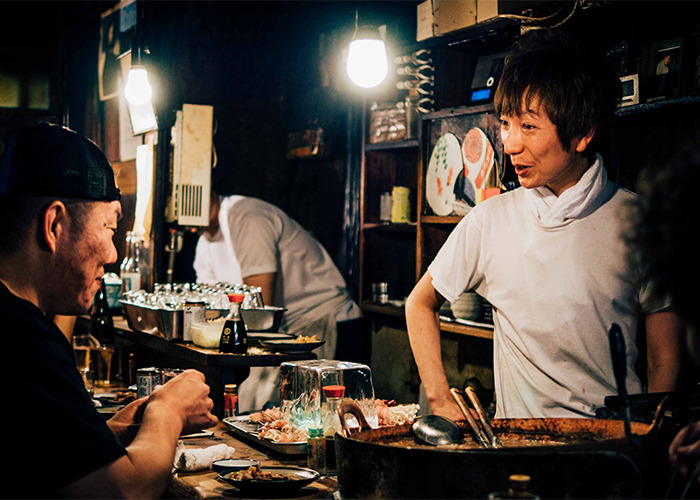 Servers that get excited when talking about the menu, and recommend an item that is not the most expensive.
Servers that get excited when talking about the menu, and recommend an item that is not the most expensive.
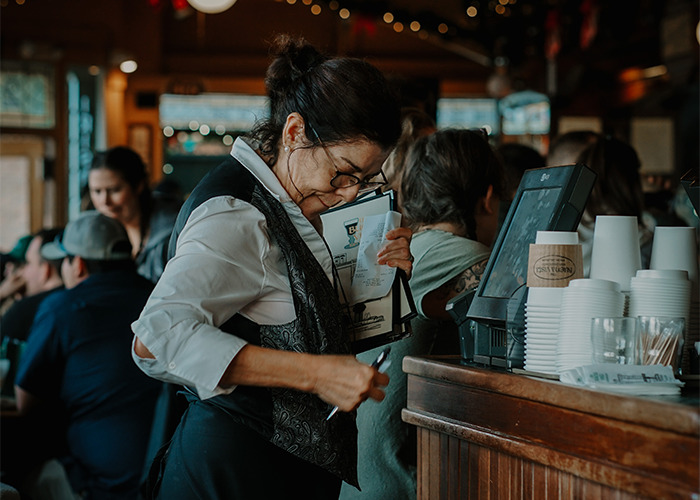 The same people are still working there 20+ years later, that means they treat their employees right.
The same people are still working there 20+ years later, that means they treat their employees right.
My local Pizza shop, that I used to go to, when it was under the original owners, they had a guy who has worked making pizza's there for years (when they sold the business, and this worker did not get along with the new owners, he had been there 27 years) and was the best at making pizza. They old owners trusted him, that he had a key to the safe in the back in case he needed to access it for the register. They literally let him run the area they made the pizzas once he had been there logn enough, and let him handle hiring. He was a good man who knew every regulars orders, etc. He said he was like family with the owners. Most workers there had worked for years, and very low turnover. Shame the new owners treated him as just another staff member and he quit, though the new owners made changes and things arent as good. Why you would do that to a 50+ year old pizzeria is beyond me. Also just 2 years after purchasing it, only 1 worker from the old days is there. Shame
While there are about a million factors that go into what makes a "decent" restaurant - for reference, we recommend watching Gordon Ramsay's classic Kitchen Nightmares or Bradley Cooper's brilliant Burnt - a well-designed menu is a crucial part of a restaurant's appeal. Sure, they are often overlooked, relegated to the realm of functional necessity. But what if we told you that a well-designed menu could be the difference between an ordinary dining experience and an extraordinary culinary journey?
 Clean bathrooms. Tells you a lot about the cleanliness behind the kitchen doors.
Clean bathrooms. Tells you a lot about the cleanliness behind the kitchen doors.
Cooks don't clean the bathrooms. This is generally not an indicator of what the kitchen looks like.
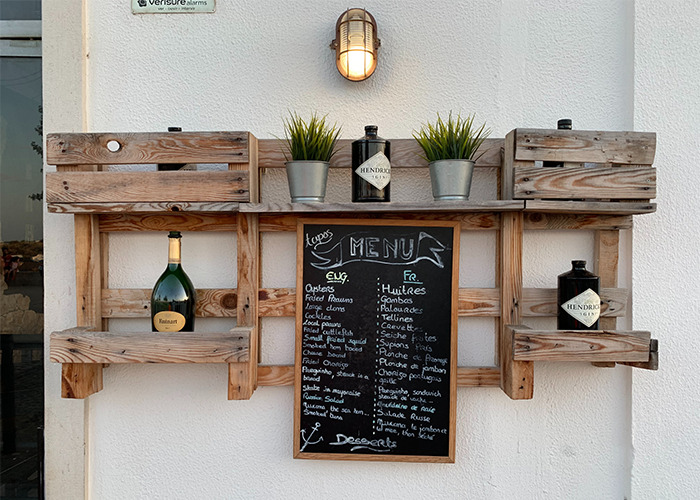 Small, focused menu.
Small, focused menu.
ionised replied:
This is green flag #1.
"A coherent menu that suggests that the restaurant has some clear vision of what it is offering," is important, Hayler, who has seen dozens of different formats, argued. "For example, a restaurant that offered (to take an extreme case) pasta, sushi and curry dishes would be a warning sign. Similarly, very long menus with dozens of choices suggest that it is unlikely to have prepared its food fresh."
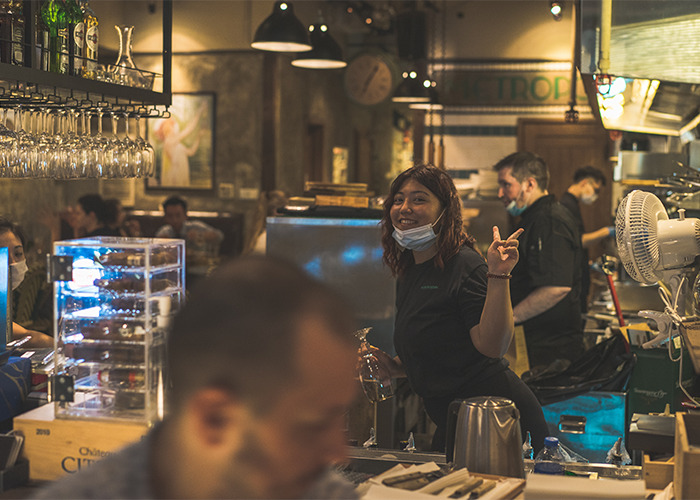 Employees in good spirits.
Employees in good spirits.
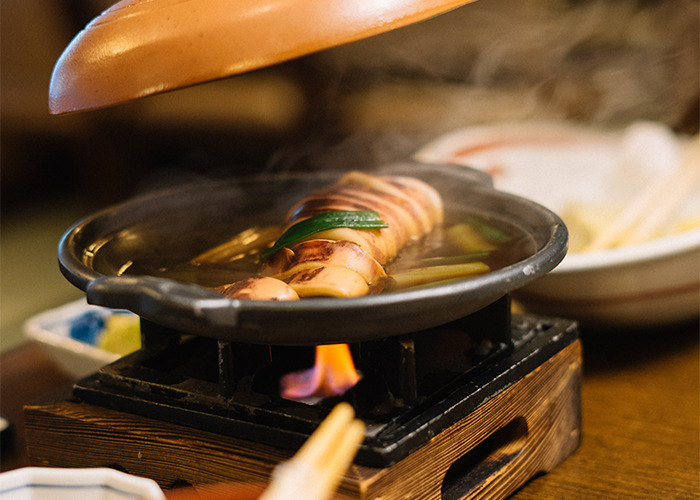 A place that smells good when you walk in. The best restaurants I’ve ever been to have all smelled fantastic as soon a you open the door.
A place that smells good when you walk in. The best restaurants I’ve ever been to have all smelled fantastic as soon a you open the door.
From personal experience, this is true. However, if you smell a duck cooking, please leave. We have no cooking experience whatsoever.
On the other hand, should you notice a list of suppliers on the menu, know that you might be in good hands (at least when it comes to food, that is). "A menu that makes a point of listing specific suppliers (for example, of meat, fish or vegetables), suggests a place that is proud of the produce that it is serving," Hayler said.
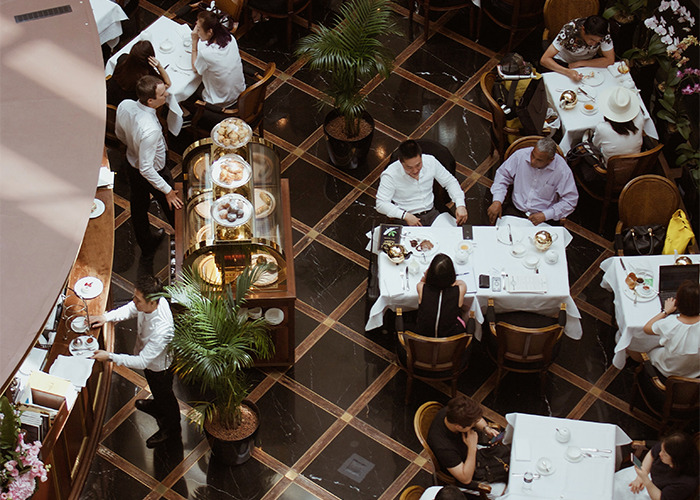 Busy on a Monday night.
Busy on a Monday night.
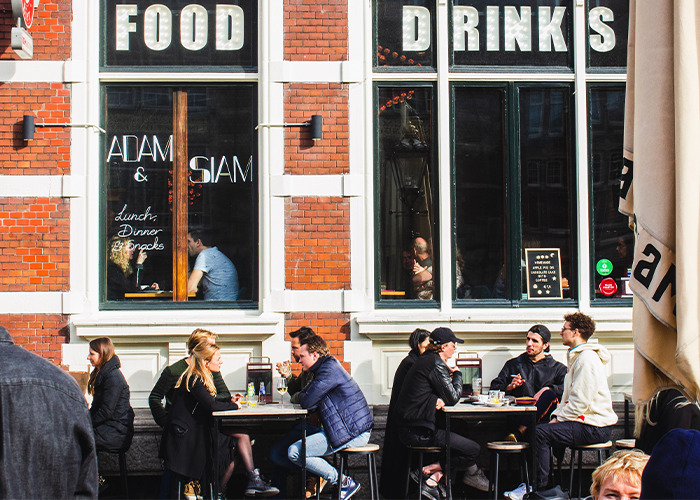 I like seeing a broad distribution of demographics eating somewhere. If you go to a taco truck in the hood and there are a few old timers, a couple cops, a few office workers, and a few construction types all eating there you know it is going to be great.
I like seeing a broad distribution of demographics eating somewhere. If you go to a taco truck in the hood and there are a few old timers, a couple cops, a few office workers, and a few construction types all eating there you know it is going to be great.
And while a poorly-made menu shouldn't necessarily be a deal breaker, it's a good place to start looking for those 'green flags.' "In addition to menu length and coherence, a menu that is clearly written and gives some indication of the garnishes will give you a better idea of what to expect than a menu that has one-word descriptions like 'asparagus, mullet, chocolate'," he explained, noting that a typo is not acceptable. "If they cannot be bothered to use a spell-checker, what else are they not bothered about?"
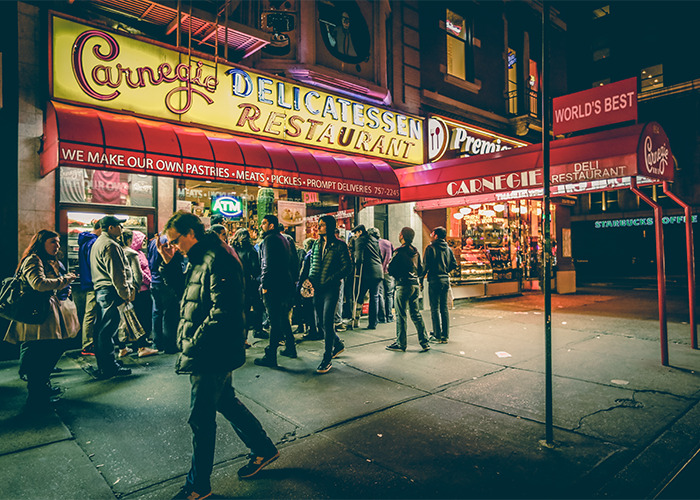 A huge lineup of locals willing to wait for food is our number one way to find the best places to eat. We live in Mexico 6 months a year and look for restaurants full of happy Mexican families, not full of tourists!
A huge lineup of locals willing to wait for food is our number one way to find the best places to eat. We live in Mexico 6 months a year and look for restaurants full of happy Mexican families, not full of tourists!
In much of the world, most of Europe at least, you never get queues at a restaurant. Either they have a table or they don't, but unless someone is just about to pay their bill they would not just let you wait around. It's very much a fast food thing, in a proper restaurant tt would be very rude to pressure existing diners to hurry up like this.
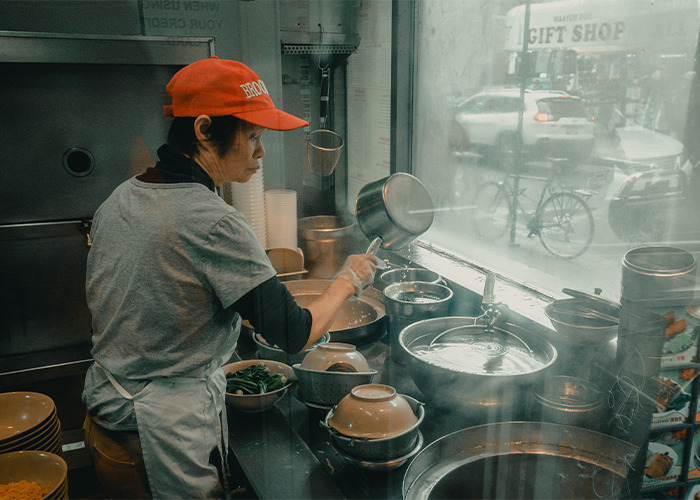 If it's Vietnamese or Chinese and the bathroom doubles as a cleaning product stockroom, and there's a grandma in the hallway snapping green beans (or other minor prep).
If it's Vietnamese or Chinese and the bathroom doubles as a cleaning product stockroom, and there's a grandma in the hallway snapping green beans (or other minor prep).
Food is going to be bomb.
"A menu is the guest’s first impression, so if it’s crumpled or stained, it portends a negative outcome for the rest of the experience," Adam Reiner, the founder of The Restaurant Manifesto blog, told Bored Panda in an email. According to him, no matter if you're at Le Bernardin or a classy no-name restaurant downtown, self-respecting eateries should treat their menus "with the respect and care they deserve" since it often becomes a make-or-break factor for patrons who arrive without any prior knowledge or expectations.
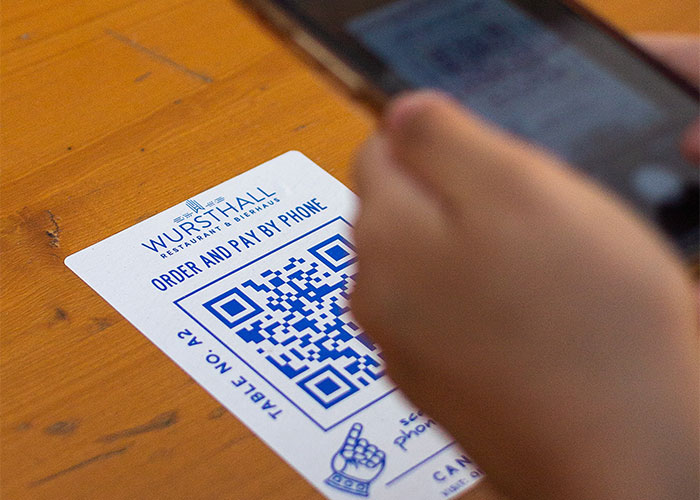 Menus you don’t need a QR code to scan.
Menus you don’t need a QR code to scan.
A lot of restaurants did that during the covid pandemic to limit cross contacts between guests. It’s absolutely not a green or a red flag anymore.
 Owners' kids doing their homework at one of the tables or even operating the register.
Owners' kids doing their homework at one of the tables or even operating the register.
All of the aforementioned telltale signs are not fool-proof, of course. "Well-funded restaurants have experienced marketers writing appealing menus," he claimed, noting that most restaurants spend money on influencers to get those shiny reviews.
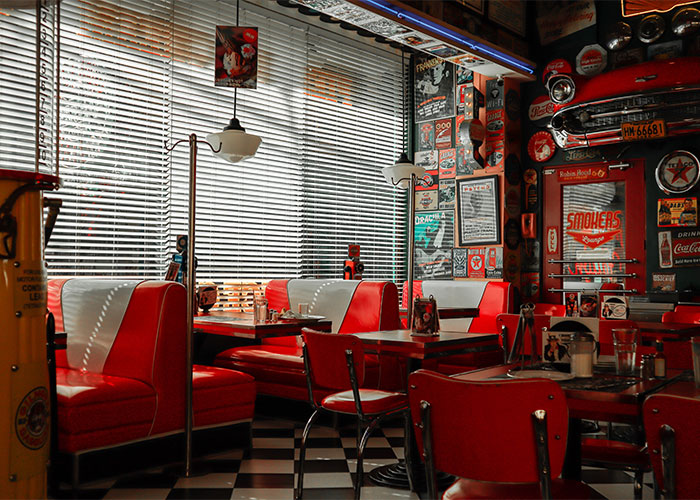 If they've had the same linoleum counter top and booth sets since the 80s, the breakfast is gonna slap.
If they've had the same linoleum counter top and booth sets since the 80s, the breakfast is gonna slap.
went to Pittburgh, parents asked some passing cops for a good place to eat (don't remember why), they all immediately said the same place. We walk in and it has those leather booth seats that are starting to crack. Great food.
Of course, what good does a neat menu bring if it rests on a sloppy table? "It’s never a good sign when you sit down at your table and find cutlery askew or glassware with smudges," Reiner explained, noting sporting these red flags can mean nothing good. "At well-run restaurants, the staff is issued highly regimented side-work that dictates the proper way to set the dining room. Sloppy table settings suggest a lack of discipline behind the scenes that will likely show up in other areas."
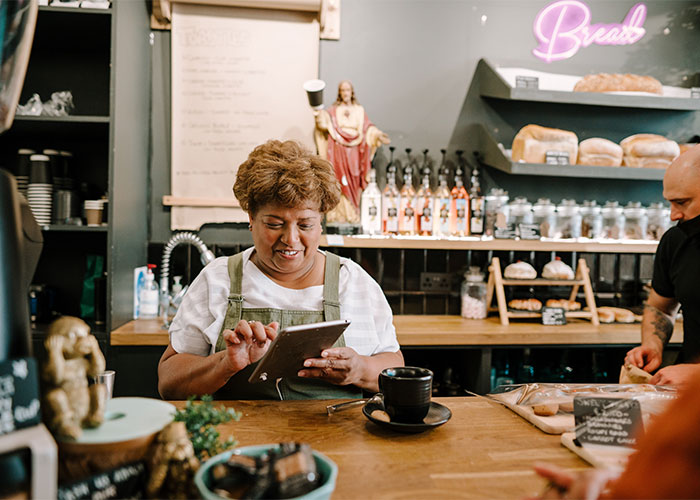 How long the servers have been there. We frequent a restaurant where a server remembers us from when my wife was pregnant. That was almost 7 years ago. The owner takes care of his staff who in turn take care of the customers.
How long the servers have been there. We frequent a restaurant where a server remembers us from when my wife was pregnant. That was almost 7 years ago. The owner takes care of his staff who in turn take care of the customers.
This may work for restaurants in small towns, but in big cities staff are more likely to move on, not because the place is bad but just because that's the nature of big cities.
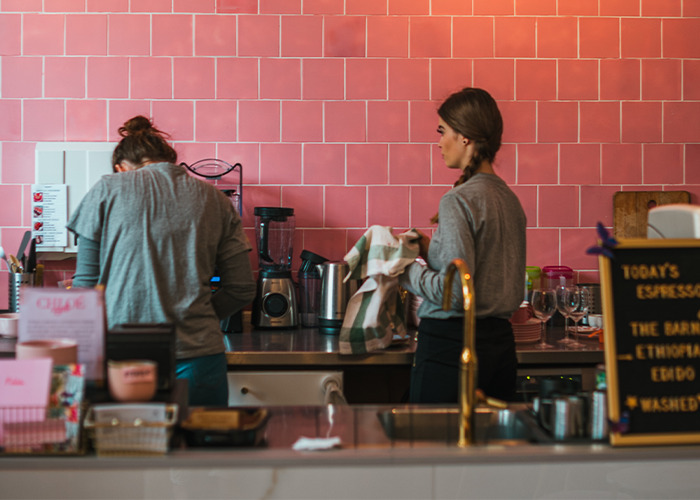 Seeing staff eating the food. Especially bits of leftovers during service.
Seeing staff eating the food. Especially bits of leftovers during service.
Seriously, I'm a career chef. We see and make the same food day in and day out, and if the staff are still excited to eat it, that's always a great sign.
Also, a healthy work/social dynamic. If the staff clearly dislike eachother, chances are they're too preoccupied to give you their best.
Restaurants that meticulously embrace the beauty of seasonality, on the other hand, show an unwavering dedication to culinary integrity. And thus should be appreciated accordingly. "Use of seasonal ingredients is a strong indicator for me," Hayler said. "A European restaurant that offers (say) asparagus in October or strawberries in January would be a major warning sign. Whatever the level or price point, a restaurant should generally be using seasonal ingredients."
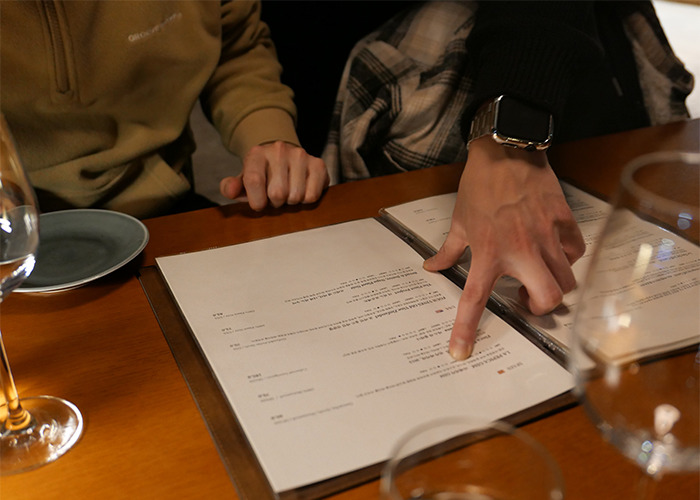 I like it when I ask their opinion and they give a thoughtful, sincere answer that shows they really know the food.
I like it when I ask their opinion and they give a thoughtful, sincere answer that shows they really know the food.
 I'm in the south. If the cooks are over 50,over 300 lbs and barefoot or wearing flip flops it's going to be good.
I'm in the south. If the cooks are over 50,over 300 lbs and barefoot or wearing flip flops it's going to be good.
In most cases, Hayler claims, a focused and clean menu should help seal the deal. As his recent experience in an Indian restaurant, located on the outskirts of London, proved to him. "It was quite new and was a small place somewhat off the beaten track, so it had limited online reviews, but those it had were very positive," he claimed.
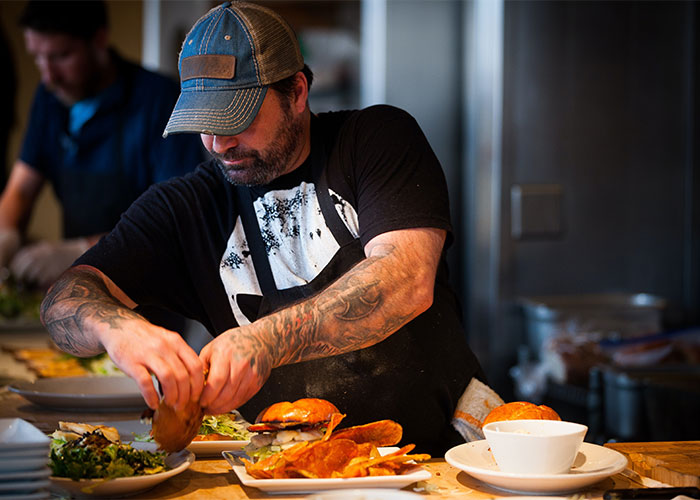 The owner is on the floor doing work, taking orders, chatting with customers etc.
The owner is on the floor doing work, taking orders, chatting with customers etc.
That and when they, or their partner, are in the kitchen cooking the food. We have some Italian places nearby that are like this and we love them. The owners have gotten to know us and that we love trying new things. Now they will bring us random dishes to test out. Nothing’s free. That’s not the point here. They just like that they can test things out on us and get honest feedback for their growing business.
What stood out the most, Hayler admitted, was the menu's emphasis on a specific regional cuisine from India, with a chef hailing from the southern part of the country. "It had seasonal Alphonso mangoes on the menu, which only appear in the spring, suggesting that there was attention paid to seasonality."
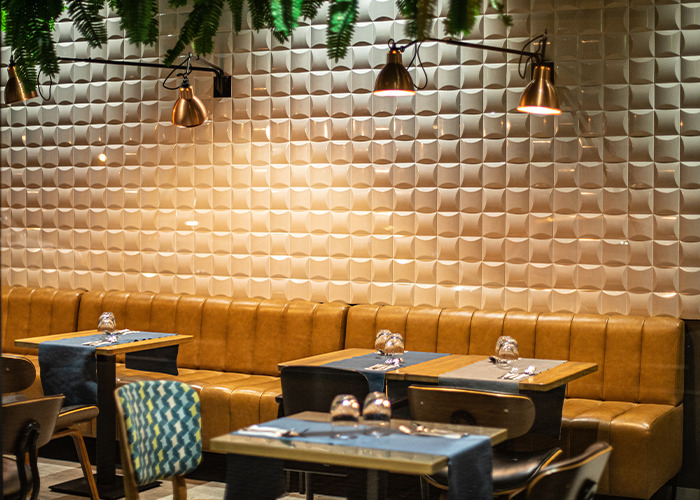 They could fit more seats and tables in, but have chosen not to.
They could fit more seats and tables in, but have chosen not to.
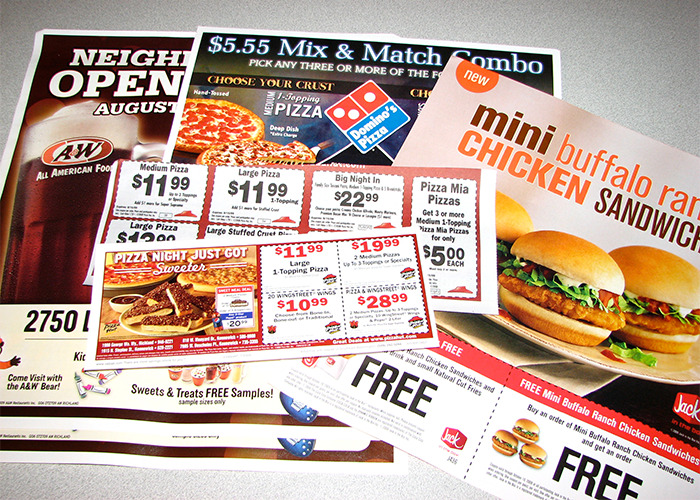 They don't offer coupons, groupons or other deals.
They don't offer coupons, groupons or other deals.
I m gonna disagree with this one. I got a coupon for a meal entree with a theater ticket and the cafe it was from was awesome. I would instead say bulk mailed coupons.
Ultimately, dining out should be an enjoyable experience, offering an opportunity to venture beyond our usual Nando's and Olive Gardens. Of course, it's safe to say that even if a restaurant doesn't meet the aforementioned criteria or is stained by a couple of 1-star reviews, it shouldn't mean that you should not give it a chance. As a recent New York Times report showed, it might be the case of false reviews which are tricky to get rid of.
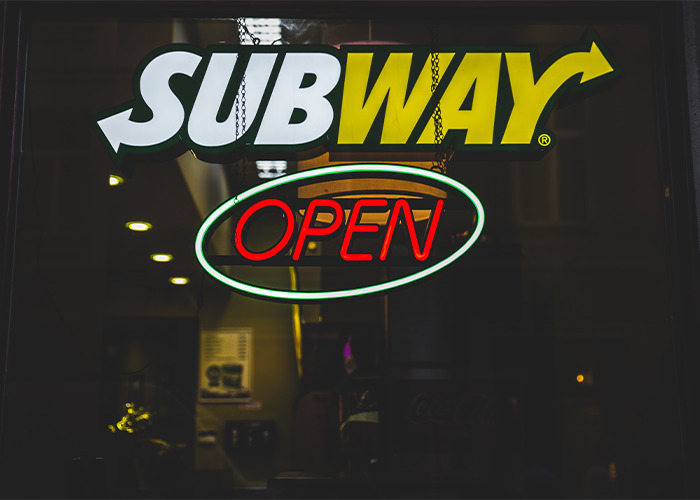 I once was in the Subway we frequented at a past job. The health inspector happened to come in, and get in line.
I once was in the Subway we frequented at a past job. The health inspector happened to come in, and get in line.
L.A. requires restaurants to post their health inspection results, using three colors: green, yellow, and red. When I lived there I knew people who insisted that only restaurants with a yellow or red rating were "authentic." As if cleanliness were somehow inversely related to the quality of the food.
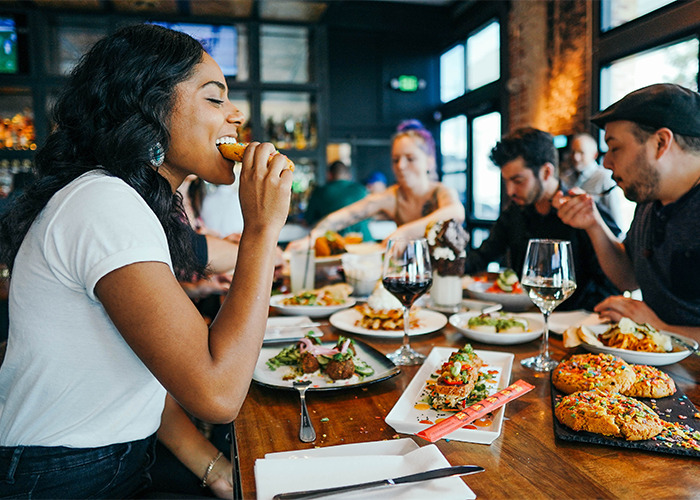 My bestie went to culinary school and worked in some great places. She looks to see if the people eating there are smiling.
My bestie went to culinary school and worked in some great places. She looks to see if the people eating there are smiling.
Still, if there is a green flag you should take to heart the next time you head for impromptu dinner, Reiner says, it must be the first impression. "Nothing sets the tone for a great dining experience better than a warm welcome. Walking into a restaurant should feel like being a guest in someone’s home," he explained, adding that nothing good can come out of a place which makes their guests wait unwelcomed.
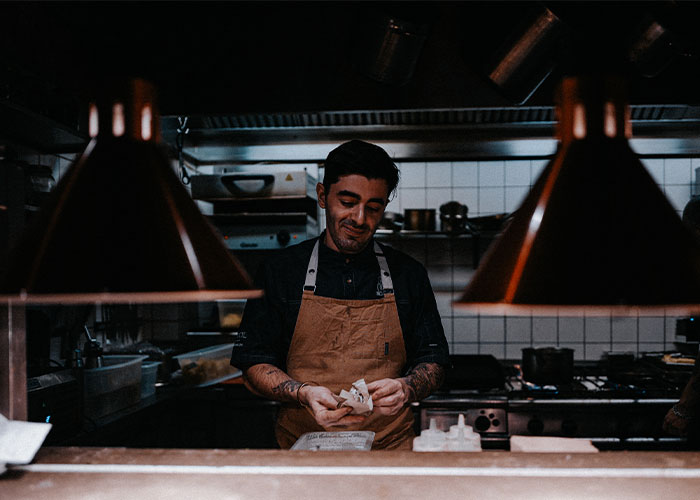 If you order the food and the person ringing you up yells at the chef in their native language, you KNOW the food's gonna be good. As someone who's Indian, it's basically how I differentiate good and bad restaurants.
If you order the food and the person ringing you up yells at the chef in their native language, you KNOW the food's gonna be good. As someone who's Indian, it's basically how I differentiate good and bad restaurants.
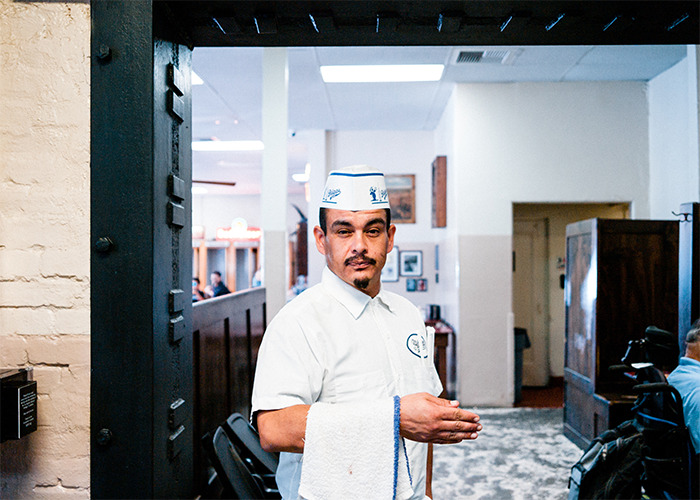 I completely disagree about the customer service / good mood wait staff comments here. Maybe it’s a Northeast US thing, but some of the restaurants with the saltiest salt of the earth employees and dogsh*t / nonexistent customer service have the tastiest food.
I completely disagree about the customer service / good mood wait staff comments here. Maybe it’s a Northeast US thing, but some of the restaurants with the saltiest salt of the earth employees and dogsh*t / nonexistent customer service have the tastiest food.
Conversely, sometimes when a place has really good or “happy” customer service it’s because they’re compensating.
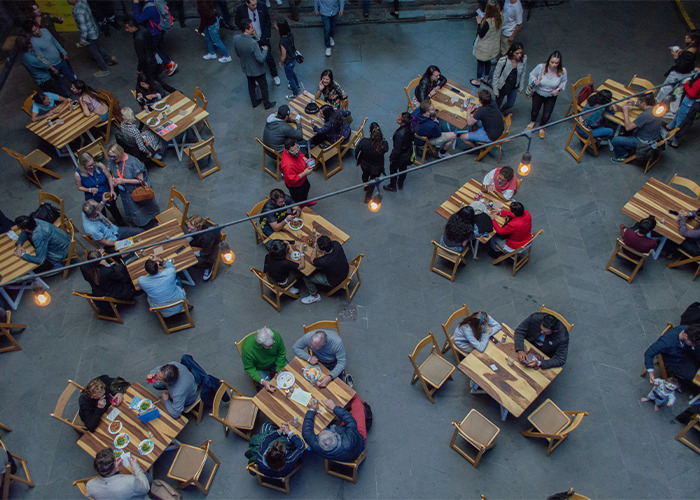 They're busy during times you'd expect them to be. A restaurant that's dead during dinner hour is a huge red flag but then being packed is good.
They're busy during times you'd expect them to be. A restaurant that's dead during dinner hour is a huge red flag but then being packed is good.
Half of these are "you know the food is going to be good when...", while the other half are "you know you probably won't get food poisoning when..."
Is it a good sign when waitstaff reads articles like this on BP for tips?
I know a Chinese restaurant here in the UK that was owned by a family from Harbin. Very unusual in the UK where most are Cantonese because of our colonial links. They serve the 'usual' generic dishes to most customers but once they found out we'd visited Harbin and had friends from there they cooked us their home dishes. Weren't even on the menu! Delicious. People around us started to ask what we'd ordered and we had to say "no idea!". We were regulars there for the whole time we lived in that city.
No cutesy names for their dishes. Call it what it is, not something dumb like Mr. Bear's Wild Salad.
I worked in a Greek restaurant. In the south, most of them are named some variation of The Clock. They serve just about everything. The owners of said Clock had cameras everywhere. When they were home, they apparently had nothing better to do than watch the cameras live--ALL THE TIME! If they saw something they didn't like, they'd call the restaurant and let the manager know to stop whatever it is the owner didn't like. When I found this out a couple weeks in, I quit. The camera-watching kind of creeped me out! It's interesting, though, they weren't watching when they were supposedly robbed of $30+K.
When a foreign food restaurant isn't decorated leaning into stereotypes. The best greek restaurant I know (well nowadays they relabeled it as Mediterranean, because apparently too many people came with wrong expectations (owner (who is also the cook, and greek) is the partner of a friend of my sister)) is also the only one I know not decorated with white columns, statues, that labyrinth pattern and font (you know the one that looks like letters carved into stone). They are also the only greek restaurant I have ever been to that doesn't have a "Poseidon plate" or anything similar (my Great-aunt loved those greek restaurants). Instead you'll find people speaking Greek among the tables and they have some delicious lemonade imported from Greece.
I look for the desserts offer, if they have ice cream, or preserved fruits its, not gonna be good
One that seems to get missed in lists like this is when you have multiple restaurants in the same close area and one of them is crazy busy even when the others are almost empty. There are two chinese takeaways literally next to each other near where I live. One of them is always busy, the other mostly empty. I bought from the quiet place one night. Yep there's a reason it's nearly empty...
I've worked in restaurants and you need somewhere clean with a menu that's not overbig, staff who've been there for long enough to get to know all the (hopefully) regulars and a nice chilled out atmosphere, not over friendly not hate and staff who can talk to each other. Many chefs show their machismo by being bullies to kitchen staff - nope..
Half of these are "you know the food is going to be good when...", while the other half are "you know you probably won't get food poisoning when..."
Is it a good sign when waitstaff reads articles like this on BP for tips?
I know a Chinese restaurant here in the UK that was owned by a family from Harbin. Very unusual in the UK where most are Cantonese because of our colonial links. They serve the 'usual' generic dishes to most customers but once they found out we'd visited Harbin and had friends from there they cooked us their home dishes. Weren't even on the menu! Delicious. People around us started to ask what we'd ordered and we had to say "no idea!". We were regulars there for the whole time we lived in that city.
No cutesy names for their dishes. Call it what it is, not something dumb like Mr. Bear's Wild Salad.
I worked in a Greek restaurant. In the south, most of them are named some variation of The Clock. They serve just about everything. The owners of said Clock had cameras everywhere. When they were home, they apparently had nothing better to do than watch the cameras live--ALL THE TIME! If they saw something they didn't like, they'd call the restaurant and let the manager know to stop whatever it is the owner didn't like. When I found this out a couple weeks in, I quit. The camera-watching kind of creeped me out! It's interesting, though, they weren't watching when they were supposedly robbed of $30+K.
When a foreign food restaurant isn't decorated leaning into stereotypes. The best greek restaurant I know (well nowadays they relabeled it as Mediterranean, because apparently too many people came with wrong expectations (owner (who is also the cook, and greek) is the partner of a friend of my sister)) is also the only one I know not decorated with white columns, statues, that labyrinth pattern and font (you know the one that looks like letters carved into stone). They are also the only greek restaurant I have ever been to that doesn't have a "Poseidon plate" or anything similar (my Great-aunt loved those greek restaurants). Instead you'll find people speaking Greek among the tables and they have some delicious lemonade imported from Greece.
I look for the desserts offer, if they have ice cream, or preserved fruits its, not gonna be good
One that seems to get missed in lists like this is when you have multiple restaurants in the same close area and one of them is crazy busy even when the others are almost empty. There are two chinese takeaways literally next to each other near where I live. One of them is always busy, the other mostly empty. I bought from the quiet place one night. Yep there's a reason it's nearly empty...
I've worked in restaurants and you need somewhere clean with a menu that's not overbig, staff who've been there for long enough to get to know all the (hopefully) regulars and a nice chilled out atmosphere, not over friendly not hate and staff who can talk to each other. Many chefs show their machismo by being bullies to kitchen staff - nope..

 Dark Mode
Dark Mode 

 No fees, cancel anytime
No fees, cancel anytime 


